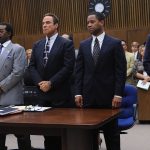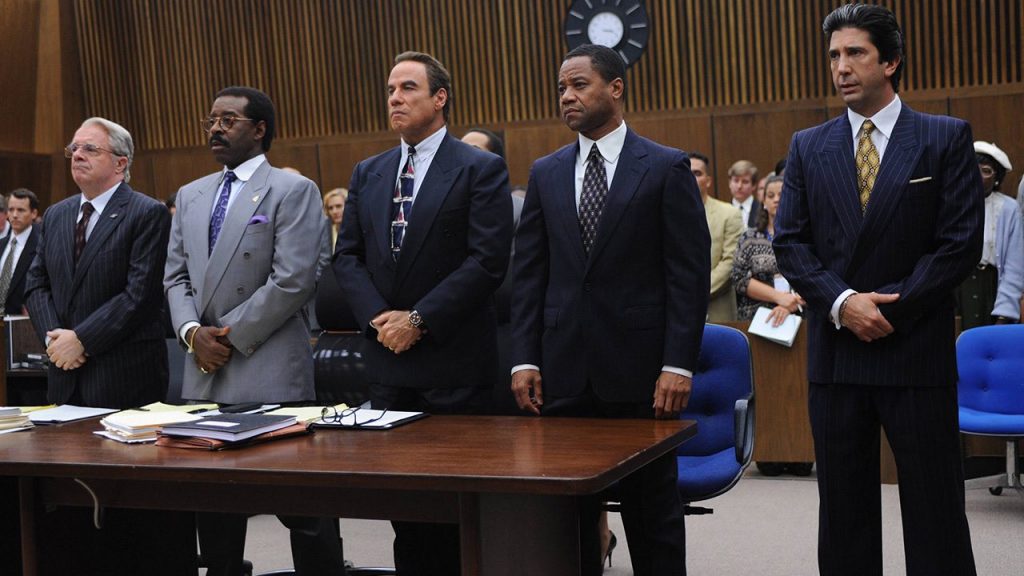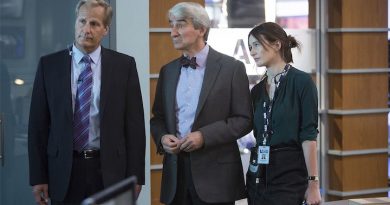O.J. Simpson: The Power of Race, Money, and Celebrity
The new spin-off franchise of American Horror Story, American Crime Story, tells the story of the 1994 murder trial of football icon O.J. Simpson in a 10-episode series called The People v. O.J. Simpson. This show premiered in February on FX and offers a deeper understanding of the people involved in the case and what it took to free O.J. Why does this show matter? Because this murder trial shocked the world in 1994 and remains fascinating in 2016.
Before we talk anymore about the show, let’s recap. O.J. Simpson was an NFL running back for the Buffalo Bills and the San Francisco 49ers in the late 1960s and 1970s. He was a nationally recognized celebrity, starring in a number of films, television shows, and even commercials, as the national spokesman for Hertz Rent-A-Car. But that all changed in 1994 when Simpson was accused of brutally murdering his ex-wife Nicole Brown Simpson and her friend Ronald Goldman. The incident occurred on June 12th outside of Ms. Simpson’s Los Angeles home.
The script for this mini-series was based off lawyer Jeffrey Toobin’s book The Run of His Life: The People v. O.J. Simpson. Despite the fact that Toobin blatantly proclaimed that O.J. was guilty, the show leaves it to the audience to decide. His book gave television producers the ability to reveal uncovered details that the public has not been aware of.
Despite the fact that everyone knows that Simpson was found not guilty, viewers remain fascinated and in anticipation of every twist and turn. What makes this crime drama stimulating and thrilling is the humanization of the characters. This extends not just to O.J. but the lawyers and the jury as well. Not only is it scary how much the actors resemble the actual people involved in the case, but their performances present a captivating portrayal of each character.
Cuba Gooding Jr. exposes the contradicting characteristics of the larger than life character, O.J. Simpson. He is charismatic in the courtroom, but his self-absorbed and whiny personality is shown when speaking with his lawyers. Also included are some heartbreaking moments that show Simpson’s mental state at his weakest.
Viewers will most likely sympathize with the prosecutors. Sarah Paulson plays over-confident head prosecutor, Marcia Clark. While the media perceived Clark as a bitch, the show exposes her as someone who is driven and optimistic. Clark is assigned Christopher Darden, played by Serlin K. Brown, as her partner. One of the most difficult moments to watch was when Darden asked Simpson to put on the bloody gloves and they didn’t fit. The prosecutors were certain that once the jury heard the evidence and O.J.’s history of domestic violence, race or celebrity would be irrelevant. Despite the prosecutor’s drive and passion to win the case, O.J.’s legal “Dream Team” had a few tricks up their sleeve.
The show introduces Simpson’s defense lawyers (a.k.a. “The Dream Team”): Johnnie Cochran (brilliant litigator), Robert Shapiro (the unlikeable and pompous attorney played by John Travolta), F. Lee Bailey (legendary cross-examiner), Alan Dershowitz (advisor for the defense team), and Robert Kardashian (the heart and soul of the case and played by David Schwimmer).
The People v. O.J. Simpson also asks critical questions about popular culture, society, and race. First and foremost, it exposes society’s obsession with fame and celebrity. Whether it be Simpson’s televised white Bronco highway chase, a book about the chaotic relationship between O.J. and his wife, or the famous Chris Rock bit on O.J., the media was overfilled with O.J. Simpson.
The show opens with a tragic video of the 1991 L.A. Riots, which were a reaction to the police beating of African-American motorist, Rodney King. This show chronicles the major racial social injustice that occurred in the early 1990s, leading up to the O.J. Simpson case.
While the dream team argued that he was framed thanks to police racism, the prosecutors claimed that O.J. did not identify with the African-American community because he was privileged and famous. In the series, defense attorney Johnny Cochran attempts to appeal to the predominately black jury by staging O.J.’s house, removing pictures of white people and furnishing it with Afrocentric decor. This puts a spotlight on the racial divide between Black and white Americans in the 1990s.
20 years later, why does this case still fascinate so many? Because one of the greatest football players of all time and America’s most cherished celebrity was accused of murder. O.J. lost the civil case later, but was pronounced “not guilty” in the criminal trial. Despite all of the evidence against Simpson, all that was needed to free O.J. was some doubt.
American Crime Story will be releasing a second season sometime next year that will focus on the aftermath of Hurricane Katrina. Will American Crime Story find a story as riveting and controversial as the O.J. Simpson murder trial? That’s for the audience to decide.







